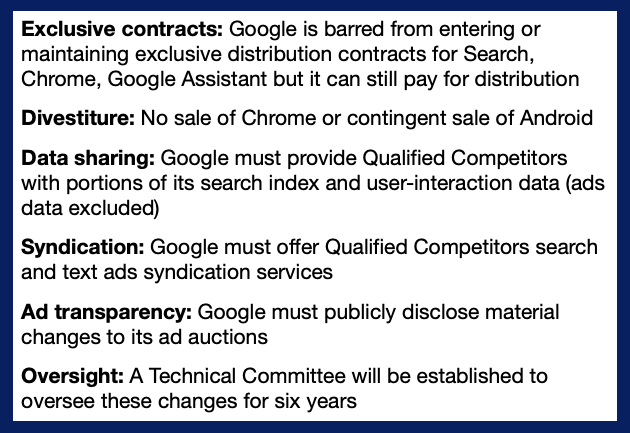Court Chickens Out, Bigger Pie, Bottom Ad, EU Blinks

Google Gets Off Easy
A Jeff Bezos inspired editorial in the Washington Post opines, "A judge did not need to curb Google’s power. AI is already doing that." While there's a smidgen of truth there, it's not nearly as much as the author thinks. As Rand Fishkin will tell you, ChatGPT isn't eroding Google's search volume (and more importantly ad revenue). Yesterday Judge Amit P. Mehta finally issued his 200+ page ruling in the remedies phase of the default search antitrust trial. Among other things, the government had asked for divestiture of Chrome. The court rejected that remedy as too severe, despite finding that "the Chrome default undoubtedly contributes to Google’s dominance in general search." As predicted, it barred Google from paying for exclusionary distribution agreements (e.g., the Apple-Google iOS search deal). But it didn't bar Google from paying for distribution. The most "serious" part of the opinion was the required sharing of "portions" of the search index and, more significantly, user-interaction data. Specifically, Google doesn't have to share its index, just a "one-time snapshot" of its search data. The court won't allow rivals to build search indexes off Google's data. But it required the disclosure of user data such as clicks, hovers, bounce-backs, query logs, and training datasets (GLUE, RankEmbed, GenAI-related). This second requirement could be very useful to SEOs and Google rivals. In response, Google predictably said, "We have concerns about how these requirements will impact our users and their privacy." While appearing measured, the court effectively chickened out. Critics have decried the ruling as ineffectual.


